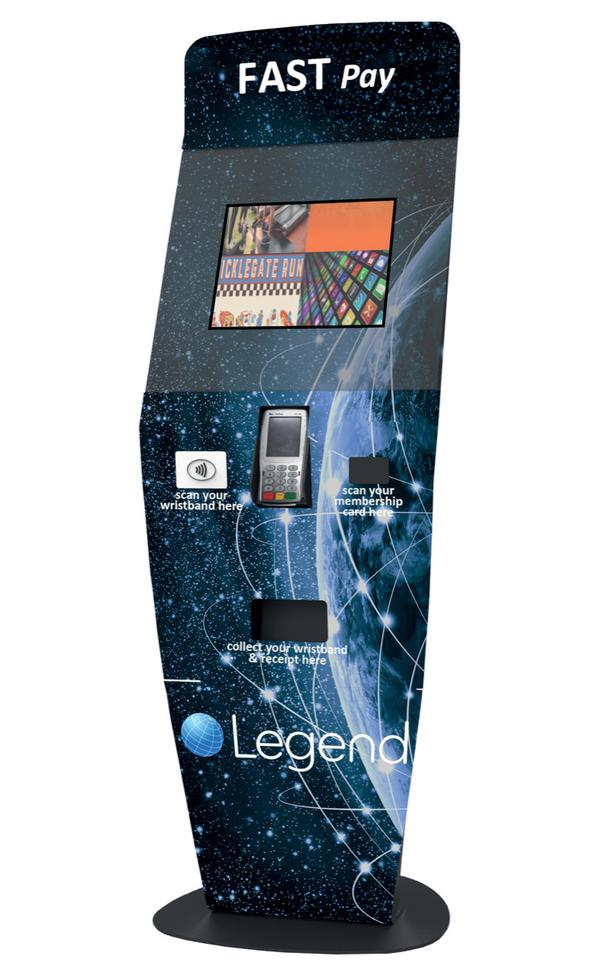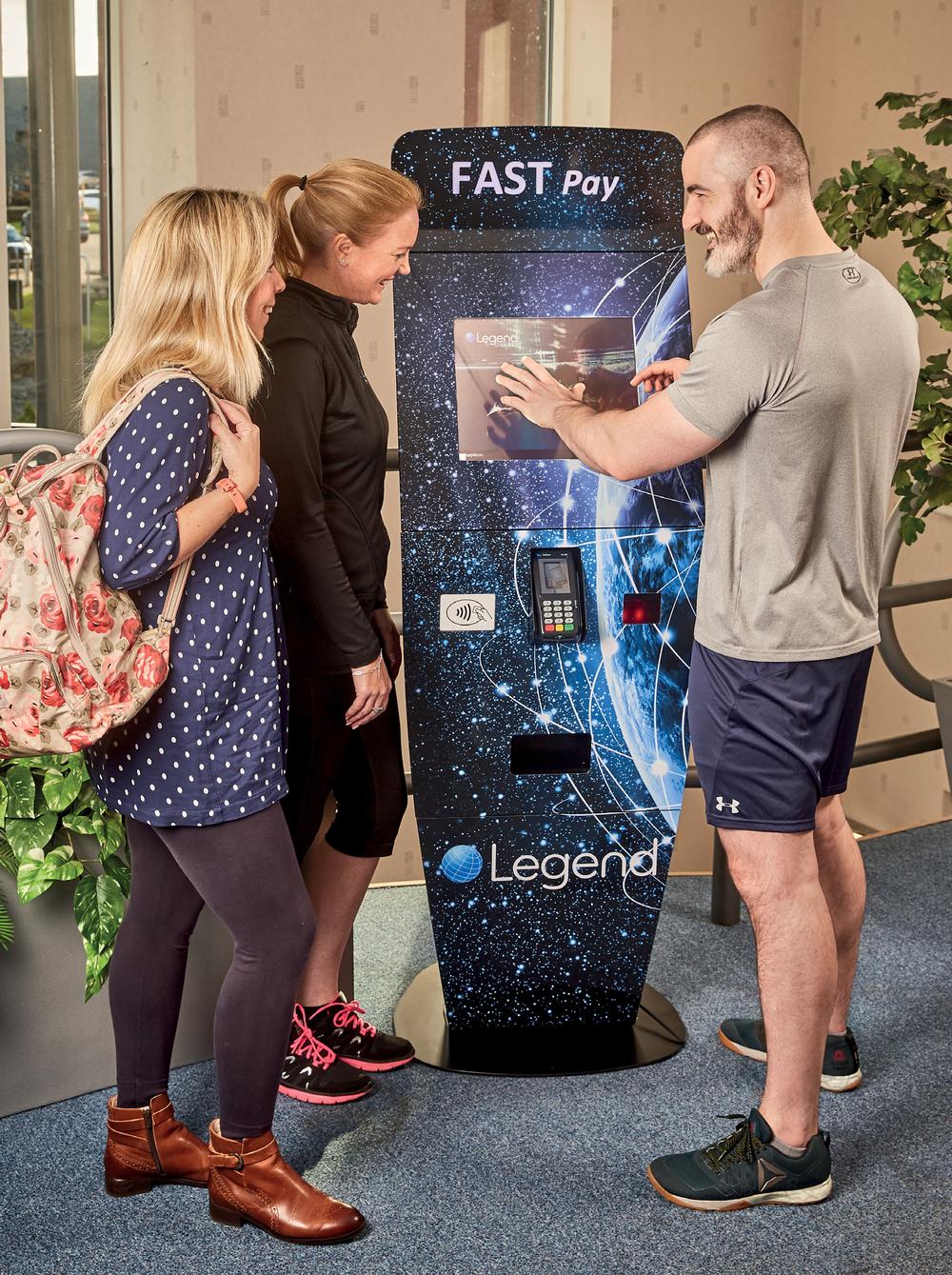Despite being faced with economic challenges, the fitness industry has seen continued growth. Not only have consumers become increasingly aware of the benefits of an active lifestyle, the introduction of new technology has provided social and motivational impetus, so much so that UK market penetration has now risen above 15 per cent.
This positive trend is being driven by the convenience of new technology that meets the needs of consumers in more efficient and customer-friendly ways. As the information economy transforms the traditional concept of gym-going, consumer expectations are also changing. In the face of increased competition and new business models, operators must modernise and embrace change if the industry is to continue to grow.
First impressions
The most important phase of the customer experience is the first 15 seconds after entering a gym. This is why the conventional reception area is morphing into a welcoming customer service focussed space, where the exact needs of customers can be met rapidly – without queues or other bottlenecks.
GLL’s associate director of marketing, sales and e-commerce Steve Ward says: “In five years’ time traditional health clubs with reception areas staffed by front of house staff answering phones will be a relic of a bygone era because the future is all about convenience. It's not a matter of ‘if’ you change the way you manage your service, it's a matter of ‘when’.”
Christopher Puszczynski-Phelps, management information manager at Serco Leisure, reinforces this point: “Almost every single experience at the current front desk can be improved with technology. Automate the automatable, streamline customer journeys and put the purpose back into staff roles. Making the really basic things frictionless allows staff to be redeployed into more rewarding customer service concierge roles – an invaluable asset to your business.”
Indeed, it is this provision of seamless customer service via intelligent automation and rejuvenated front of house staff that is the key to a transformed customer experience.
Customer Journey
The potential of self-service kiosks to create a frictionless customer service environment can be seen beyond the leisure industry. Banks, cinemas, restaurants and high street stores are all increasingly experimenting with cashless, digital environments where technology replaces the traditional ‘counter top sale’ and staff function as ‘concierges’ or customer stewards.
Ward explains: “Turning staff into people who can actively help our customers is a really positive way to frame kiosk uptake, streamline customer journeys and transform a business.
It means that customers who know exactly what they want to do can do so seamlessly, while those who need additional support can get it from a dedicated member of staff.”
Fast-Payment Kiosks
In October 2017 Legend launched the industry’s first Fast-Payment Kiosk that offers two interchangeable modes on one kiosk platform: Fast-Payment and Fast-Track. With contactless payment using card, smartphone or app, Legend’s new cutting-edge kiosk facilitates a seamless customer journey through front of house; the platform for a friendly, well-managed concierge area.
The solution is designed and engineered to minimise queues and make it easier for customers to pay for services.
But it is vital that the customer journey is fully considered. As Sean Maguire, managing director of Legend Club Management Systems, comments: “We’ve learnt so much from the incredible adoption of self-service by our customers. What we’re now seeing is the need for specialisation and tailoring of journeys. Customers either require Fast-Payment or Fast-Track, but the two functions are incompatible on the same kiosk because the one requires a transaction speed of less than ten seconds, while the other might need the customer to make booking choices. Wasting your customer’s time is the ultimate sin in today’s digital world.
This is why we no longer recommend a multi-use kiosk – it doesn’t work in practice because Fast-Track customers cannot tolerate waiting behind a customer doing a longer transaction.”
A key feature of the new Legend kiosk design is the branding potential and customer signposting built into the materials. Unlike kiosks of old, which were clunky and unattractive, the new Legend kiosk sports an ergonomic design that features full 360-degree customer branding with eye-line signposting. The intention is to create an aesthetically pleasing branding impact at reception, helping operators make a better first impression with members.
GLL’s Kiosk Success Story
While the leisure industry’s adoption of kiosk technology might be in its infancy, there are outstanding examples of success. GLL began implementing Legend’s Fast-Track kiosk in 2012. Today, GLL has in excess of 7.4 million kiosk transactions a year, which translates into a lot of time freed up for staff to positively interact with customers.
Steve Ward explains, “In Wembley and Belfast, GLL no longer has any front of house reception desks. The desks have been dismantled, phones and cash processing removed, and kiosks installed. We have found that footfall hasn’t been affected by this change, income is increasing and customer experience levels are going up.
“Customers who can’t or don’t want to book online or use kiosks need a higher level of interaction, and this is what we are focussing on now. By using staff to greet people out the front, we are now able to spend more time on hard to reach groups and customers who need extra time to improve their experience and less time on those who know what they want and how to get it.”
Embrace the Future
Ward concludes, “If you haven’t yet started selling online or transacting with customers through kiosks you certainly need to. New kiosk technology, such as Legend’s, can be a valuable enabler of change and provides another important platform with which to fashion the future delivery and growth of our business.”

























































